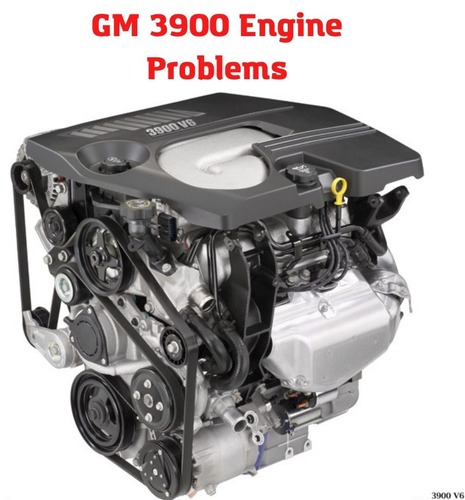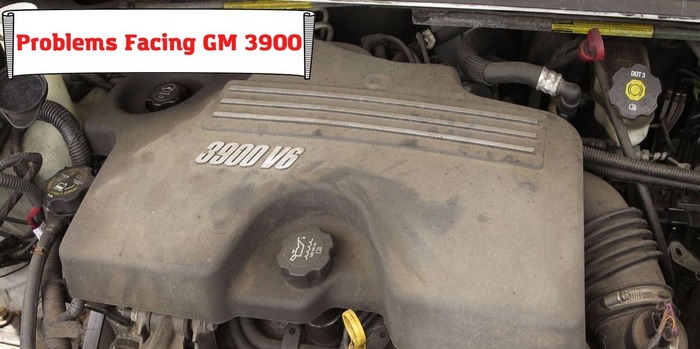
If you are familiar with biology, you know that the human body needs energy to function and that such energy comes from the breakdown of food particles. This is not dissimilar to the way a car works. For the car to move, energy is required to move the mechanical parts. Like we all probably know, such energy comes primarily in the form of chemicals which could be gas or diesel, or in the form of electrical currents in the case of electrical cars. But chemicals themselves do not push the car forward; mechanical work has to be done. The engine is the pivotal element here. It transforms the chemical energy into heat energy by combustion, and then, this combustion powers the car mechanically. From this, it is easy to say that the engine is without a doubt, one of the most important parts of the car, and should be watched out for by car owners.
In this article, we are going to explore a few things about the GM 3900 engine, namely:
- Engine Problems
- Gasket Failure
- Timing Issues
- Horsepower
- Torque
- Valves
- Synthetic oil
- Reviews
This would act as a guide, for those seeking information about the GM 3900, giving you better insight into the brand as well as other things you need to know.
Manufacturers
As the name indicates, General Motors company manufactures the GM 3900 engine. The company is an American automotive manufacturer that operates on a multinational scale. The headquarters is currently situated in Detroit, Michigan, the United States with several other branches in other countries such as Brazil, Argentina, Chile, Mexico, Canada, Columbia, Egypt, Japan, and Korea.
With a net income of US $6.427 billion and revenue of US $122.485 billion, the company is America’s largest automobile manufacturer (alongside Ford motor company and Chrysler Stellantis North America, all known as the Big Three) and one of the largest in the world.
GM 3900
The GM 3900 engine is a part of the high-value engine family which utilizes the same 60° vee bank similar to the 60° V6 family from which they were created.
The introduction of the high-value engines (except LX9) fetched General Motors the 2006 Breakthrough award from Popular Mechanics for being the first cam in block engines to achieve variable valve timing.
Although the company stopped producing the GM 3900 in 2009 with Buick Lucerne and stopped selling the engines in US vehicles in the 2012 model year, alongside other high-value engines such as GM 3500, a notable proportion of vehicle owners still make use of the engines which are still in circulation.
Problems Facing GM 3900

An engine is the heart of a vehicle. Without a good engine, the vehicle is rendered handicapped in its functions. Little wonder, vehicle owners are often concerned about the quality and state of the engine of their vehicles.
The GM 3900 engine's family, the High-value engines were succeeded by another set of engines, GM High feature engines; thus attesting to the limitations and challenges related to the older set of engines.
Gasket Failure
The gasket of the GM 3900 was reported to have low-grade quality, thereby leading to multiple leakage complaints by consumers. The gasket's main purpose is to provide a sort of wall between the cylinder head and the engine block. However, if the gasket is not working properly, it could lead to less pressure within cylinders as it is unable to adequately seal the combustion gases in. The cylinders also suffer as engine oil leaks into them.
Once there’s a leak in the head gasket of the engine, it could cause the vehicle to overheat and cause poor engine performance.
Timing Issues
Engine timing issues are common things when it comes to cars. They are especially caused by the timing belts. The GM3900 has some timing issues of its own and there are four major things you can look out for to know:
- Ticking Noises
This is not just common in other engines but the GM3900 also has issues like this as well. It is important that care is taken because these ticking noises can be at times deceitful. Sometimes, the ticking noises are caused by lifters in the engine notifying you that the oil level in the car is low especially when going downhill or uphill. In the case that the car oil is full, it is important that you check the engines as long as there are no distractions like loud music. The GM3900 engines rarely have timing issues but sometimes, they can be a real discomfort.
- The “Check Engine” Light
This light can start to blink for so many reasons so to avert confusion, getting an OBD2 scanner is the best choice. When you get one, connect it to your car on-board diagnostic system and get to know which part causes the light to blink.
- The occasional misfire
The timing belt of an engine is responsible for controlling the valves present in the engine. If when driving, you get an occasional misfire, then it means the timing of the engine is completely or slightly off. This happens when the cylinders go out of order with valves. It is also important to note that when the car gets too many misfires, it might not be timing but it may be something else.
- Rough car idling
Another sign of timing issues with the GM3900 engine is bad car idling. When you switch on the car, and you notice that the RPM range is uneasy and unstable even when the car is not moving, this is definitely a sign of rough car idling which is caused by bad engine timing. This rough idling is usually less noticeable when driving at high speeds.
Like most other engines, the GM3900 also shows these symptoms and when you want to find out if the GM3900 really has timing issues, it is advisable that you look for two or more of these symptoms and not just one alone.
Horsepower
The GM3900 engine has been used in numerous vehicles which had power requirements specific to them. The horsepower of the engine varied depending on the brand of the car in which it was fixed. Let us compare a few of these cars for better understanding; The Pontiac G6 Convertible at an RPM range of 5600 has a horsepower of 222, another is the Chevy Impala Bin 4 Emissions has a horsepower of 224 at an RPM of 5700, the Buick Lucerne has a horsepower of 219 at an RPM range of 5700. As you must have noticed, the horsepower varies for each car type.
Torque
Just like there are differences in horsepower, there are also differences in torque when it comes to the GM3900 engine. For example, the Chevy Impala Bin 4 has a torque of 224 lb-ft, the Bin 5 has a torque of 233 lb-ft, the G6 convertible has a torque of 222 lb-ft and the Buick Lucerne has a torque of 234 lb-ft.
Valves
Talking about valves, the GM 3900 is blessed with overhead valves of 60 degrees. Each cylinder comes with two valves and dual valve timing. It also has other features which include a displacement of 3.9 liters, and a stroke that is 3.31 inches in length.
Synthetic Oil
The GM3900 requires 5w30 synthetic oil. This oil is used in most vehicles that have been produced after 2011 and Dexos-compatible oils have to be used to ensure your warranty does not go invalid. As for the kind of synthetic oils that are recommended by the GM3900, the Dexos synthetic oil is the recommended version and it was manufactured by General Motors.
Reviews
As for reviews concerning the GM3900, they are mixed. Some customers complained while others did not, but the good reviews outweigh the bad. In terms of bad reviews, the customers complained about gasket failure and slight manifold issues and in terms of good reviews, the customers have claimed that the GM3900 engines are more durable and reliable compared to most other engines and of this type, the gasket related issues are being curbed. This engine is on its way to perfection.
About the authors
The CarAraC research team is composed of seasoned auto mechanics and automotive industry professionals, including individuals with advanced degrees and certifications in their field. Our team members boast prestigious credentials, reflecting their extensive knowledge and skills. These qualifications include: IMI: Institute of the Motor Industry, ASE-Certified Master Automobile Technicians; Coventry University, Graduate of MA in Automotive Journalism; Politecnico di Torino, Italy, MS Automotive Engineering; Ss. Cyril and Methodius University in Skopje, Mechanical University in Skopje; TOC Automotive College; DHA Suffa University, Department of Mechanical Engineering






Add comment